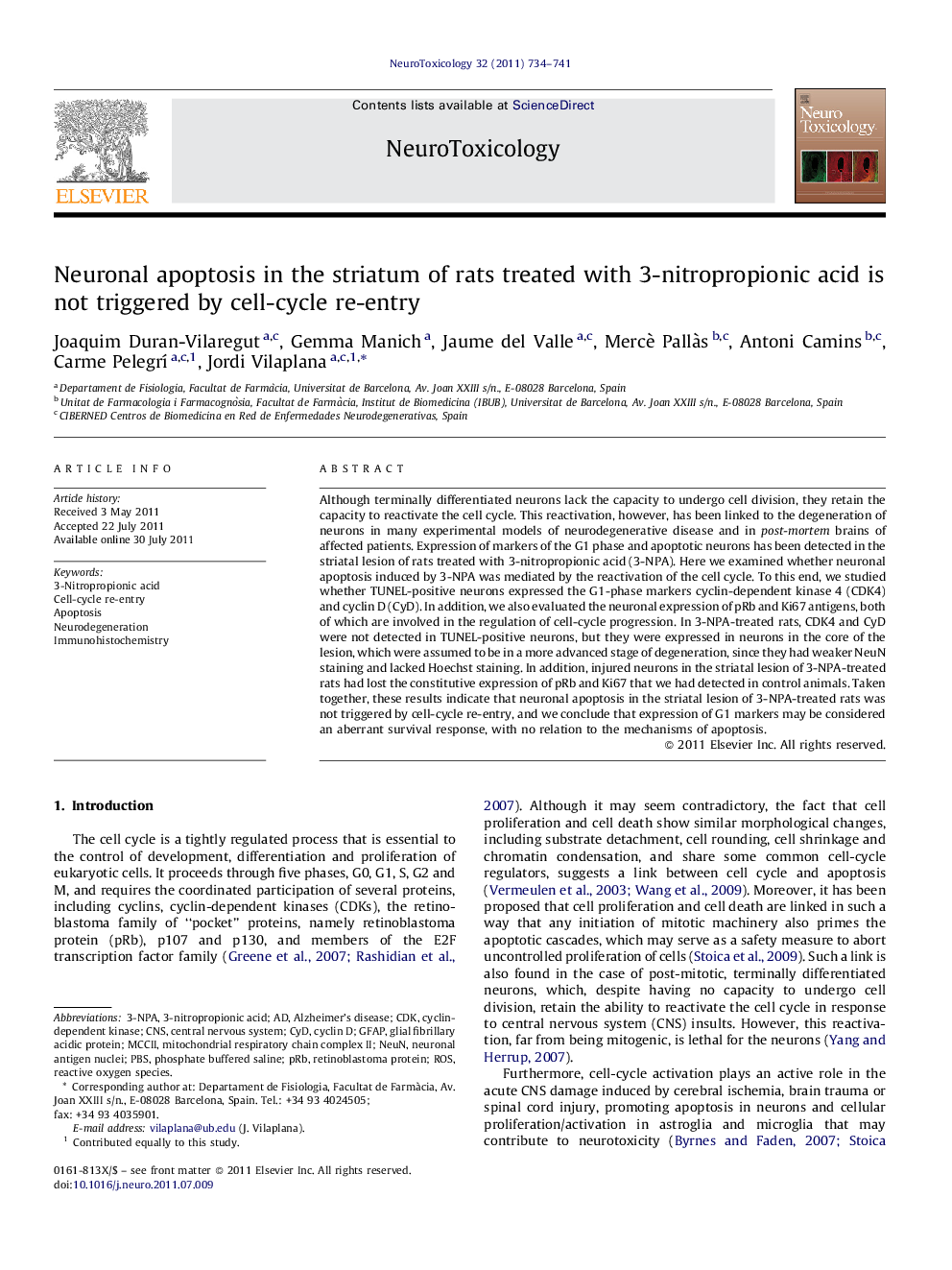| Article ID | Journal | Published Year | Pages | File Type |
|---|---|---|---|---|
| 5855423 | NeuroToxicology | 2011 | 8 Pages |
Although terminally differentiated neurons lack the capacity to undergo cell division, they retain the capacity to reactivate the cell cycle. This reactivation, however, has been linked to the degeneration of neurons in many experimental models of neurodegenerative disease and in post-mortem brains of affected patients. Expression of markers of the G1 phase and apoptotic neurons has been detected in the striatal lesion of rats treated with 3-nitropropionic acid (3-NPA). Here we examined whether neuronal apoptosis induced by 3-NPA was mediated by the reactivation of the cell cycle. To this end, we studied whether TUNEL-positive neurons expressed the G1-phase markers cyclin-dependent kinase 4 (CDK4) and cyclin D (CyD). In addition, we also evaluated the neuronal expression of pRb and Ki67 antigens, both of which are involved in the regulation of cell-cycle progression. In 3-NPA-treated rats, CDK4 and CyD were not detected in TUNEL-positive neurons, but they were expressed in neurons in the core of the lesion, which were assumed to be in a more advanced stage of degeneration, since they had weaker NeuN staining and lacked Hoechst staining. In addition, injured neurons in the striatal lesion of 3-NPA-treated rats had lost the constitutive expression of pRb and Ki67 that we had detected in control animals. Taken together, these results indicate that neuronal apoptosis in the striatal lesion of 3-NPA-treated rats was not triggered by cell-cycle re-entry, and we conclude that expression of G1 markers may be considered an aberrant survival response, with no relation to the mechanisms of apoptosis.
⺠We examined cell-cycle re-entry in striatal apoptotic neurons after 3-NPA treatment. ⺠TUNEL positive neurons did not show either CDK4 or CYD staining. ⺠TUNEL-positive neurons lost constitutive expression of pRb and Ki67 antigens. ⺠Striatal neuronal apoptosis induced by 3-NPA was not triggered by cell-cycle re-entry. ⺠Expression of CDK4 and CyD was considered to be an aberrant survival response.
